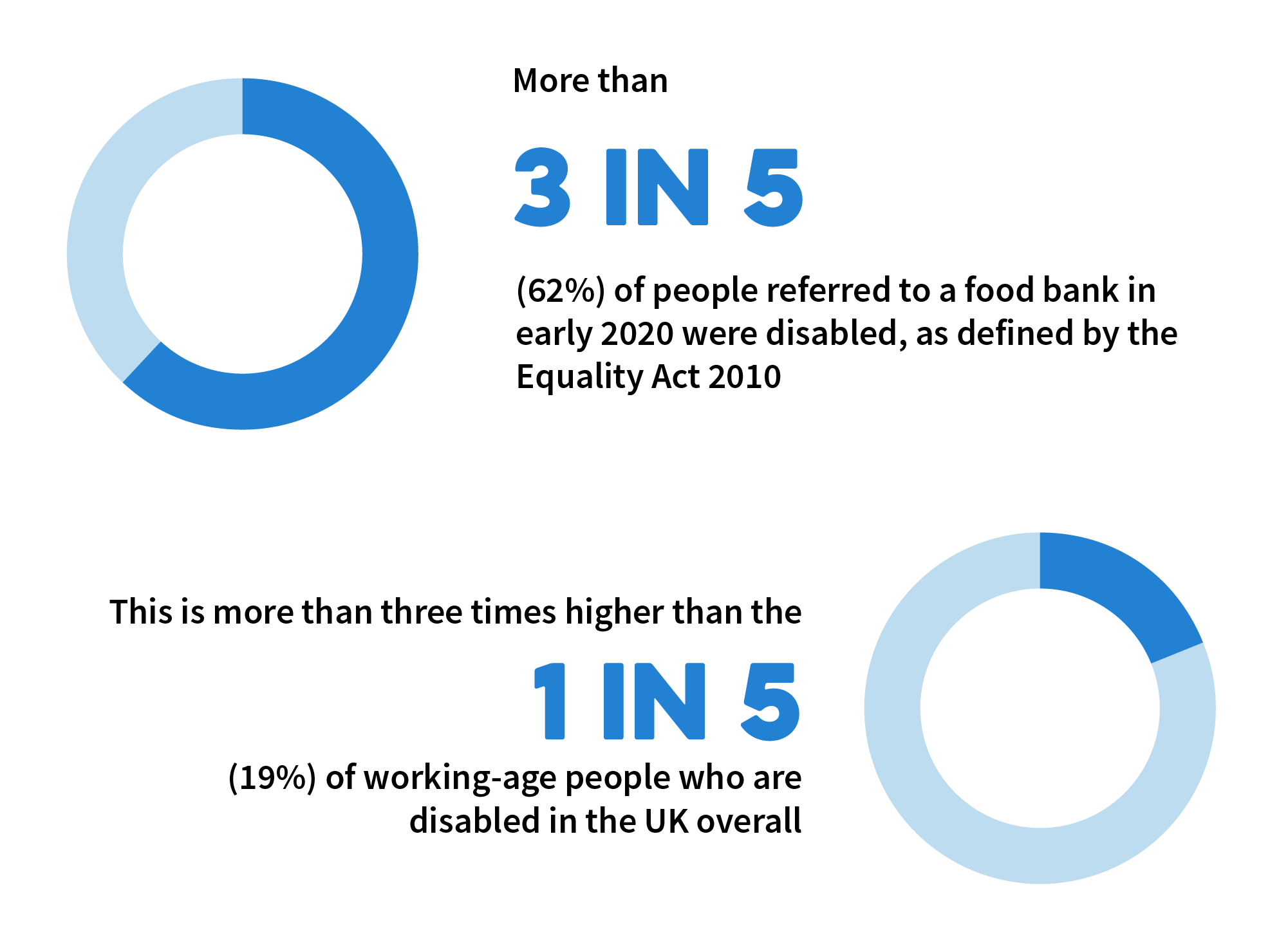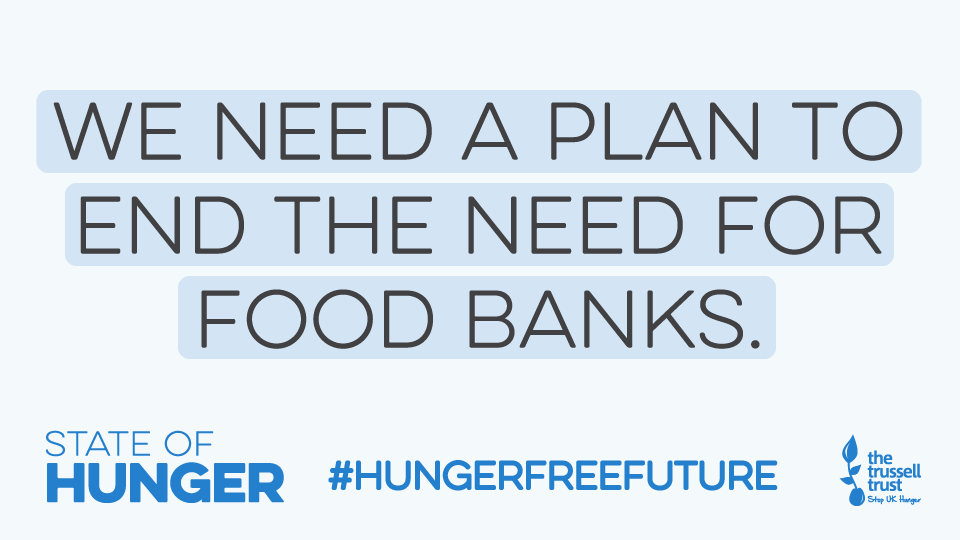Our previous blog looking at our State of Hunger research identified the design of the social security system as the main reason why people need support from food banks. This research also highlighted background factors that can increase the risk of people needing support. These include people who experience challenging life events (e.g. divorce, ill health, or eviction) or lack local support networks to keep them afloat during a crisis.
The experiences of some people involved in the State of Hunger research are included in this blog. Names have been changed to protect their anonymity.
Adverse life experiences can drive people into destitution
Our research shows a clear relationship between experiencing an adverse event such as job loss or eviction and needing support from a food bank. The majority (85%) of people referred to a food bank in early 2020 experienced an adverse event in the last year, in their work or their personal life.
It was common for people to have experienced several adverse events. More than half of people had experienced 2 or more adverse events in the last year, while a higher proportion of people experienced 4 or more (18%) than hadn’t experienced any (15%). This helps show how one adverse event can have serious knock-on effects.

These life events can put people at greater risk of destitution by:
…reducing the likelihood of finding and staying in work.
One person we spoke to as part of State of Hunger, Paul, explained that after his relationship with his partner broke down and his mental health worsened, he was forced to quit his job.
…making it harder to claim benefits or receive formal support.
Another person we interviewed as part of State of Hunger, Sara, told us that she became homeless after she left an abusive partner. That meant she was unable to manage the switch to Universal Credit.
“I had to run from my ex-partner. I had to get away. I was homeless, and I was doing okay actually for a few months, and then my benefits changed to Universal Credit and that was just a disaster. I just couldn’t cope financially.”
…increasing day to day living costs.
Julie has a health condition, and one of her children is disabled. This increases the costs she faces, as her son requires expensive equipment, such as particular shoes and a motorised bed. When her fridge broke and she was unable to afford a new one – but without a fridge to keep food fresh she needed to buy food more frequently, which was difficult and increased her costs.
“It’s just if it’s not one thing, it’s another. If it’s not the house, it’s the stuff in the house, it’s the equipment. It’s my illnesses, it’s my son’s disabilities, and it’s just my mental health, and it’s just horrible.”
Living in destitution can also increase a person’s likelihood of experiencing an adverse life event, since being unable to afford essentials forces people to go without the basics that would help keep them healthy and secure. For example, if you’re struggling to afford your rent, you’re more likely to fall behind on payments and so more likely to be evicted. Others may be consistently living with low levels of income placing strain on their mental health as they struggle to keep up, or impacting on their physical health as they need to cut back on food, heating or other essentials.
The adverse impact of ill-health
Disability and ill-health are a crucial part of why people need to use food banks in the UK.

Although disability or ill-health are in many ways different from the other kinds of adverse life experiences discussed above, they are similar in the knock-on effects they can have on someone’s finances or work.
Becoming sick or disabled can be hugely adverse life events that push people into needing to use a food bank. 20% of people referred to food banks in early 2020 had either themselves or their partner become sick or disabled in the last year, while 8% of people had needed to take sick leave from work and 2% had had to give up work to look after a family member.
A lack of support
A lack of formal and informal support is the final major factor in food bank use that our research has identified. People on low incomes often have very low levels of savings to draw from so the availability of other forms of support are crucial in supporting them to get them back on their feet if they experience financial crisis. This could include support such as professional support such as benefits advice or mental health care, or informal support from friends or family such as providing meals for children or offering financial support.
People who need to use a food bank tend to have exhausted the support they can ask for from friends and family, not to have anyone to ask for help, or to have been receiving help but it not be enough to prevent them having to use a food bank. In early 2020, 42% said they’d asked family or friends for help in the past but couldn’t ask for more – while an additional 20% said they couldn’t ask because their family and friends weren’t in a position to be able to help.
Professional support services such as local welfare assistance, benefits and housing advice, and mental health support have become harder to access for many, due to limited funding and increasing demand. This means that too often the support people need often isn’t available when they experience a crisis.
Low income remains the key issue
However, it’s important to remember that low income, and particularly inadequate levels of benefits, is still the main reason for needing support from a food bank.
To stop people experiencing severe hardship and needing support from a food bank we are asking governments at all levels to commit to a plan to end the need for food banks. This plan should include:
- Ensuring everyone has enough to afford the essentials – starting with keeping the £20 increase to Universal Credit and extending this to legacy benefits, so we can reach all families who need this lifeline
- Ensuring local lifelines are available to get people the right support at the right time – investing in and improving coordination of local support, such as local welfare assistance schemes.
- Involving food banks and people with lived experience and adopting a cross-government approach.



